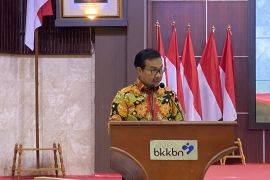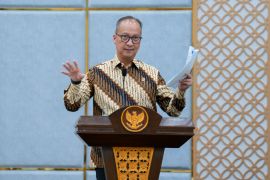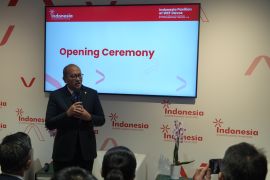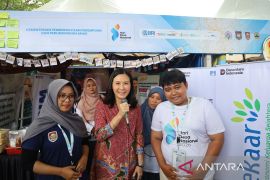"Germas is essential to be promoted in the educational environment so that children can cultivate a healthy lifestyle since school age," he observed at the Germas Award ceremony, which was followed online from here on Tuesday.
All school-age children are expected to implement the messages of Germas actively in their environment through the knowledge they obtain at school, Effendy noted.
"Therefore, education, dissemination, and good practices at schools regarding the implementation of Germas must become a priority so that Indonesian children can implement a healthy lifestyle from an early age and grow to become excellent and quality human resources," he added.
He said that physical facilities also need to be provided to support Germas.
According to the minister, Germas would not become a culture if there are no driving forces to push its implementation. The first thing that needs to be done is to increase the active participation of every layer of society, he said.
To support the implementation of Germas from an early age, parents and teaching staff need to provide children with an understanding of the importance of following a clean and healthy lifestyle, especially to prevent non-communicable diseases, he added.
He further said that based on the 2019 Global Burden of Disease, non-communicable diseases contributed the most to deaths and disability in Indonesia.
"Non-communicable disease cases increased from 2013 to 2018. (The proportion of) People with high blood pressure increased to 34.1 percent, (people with) diabetes mellitus experienced an increase to 8.5 percent, and people with obesity also increased to 31 percent," he explained.
In addition, based on the Health Ministry's data, as of December 2, 2022, out of 6,270,759 people who underwent early screening for non-communicable diseases, 2,453,689 or 39.13 were obese, 1,941,170 or 30.96 percent had high blood pressure, while 138,415 or 2.21 percent were diagnosed with Type 2 diabetes mellitus.
Related news: Germas as main core to control non-communicable diseases: Minister
Related news: Diabetes Day reminder of importance of physical exercise: ministry
Related news: Ministry asks people to undergo health checks regularly
Translator: Wuryanti Puspitasari, Raka Adji
Editor: Azis Kurmala
Copyright © ANTARA 2022












